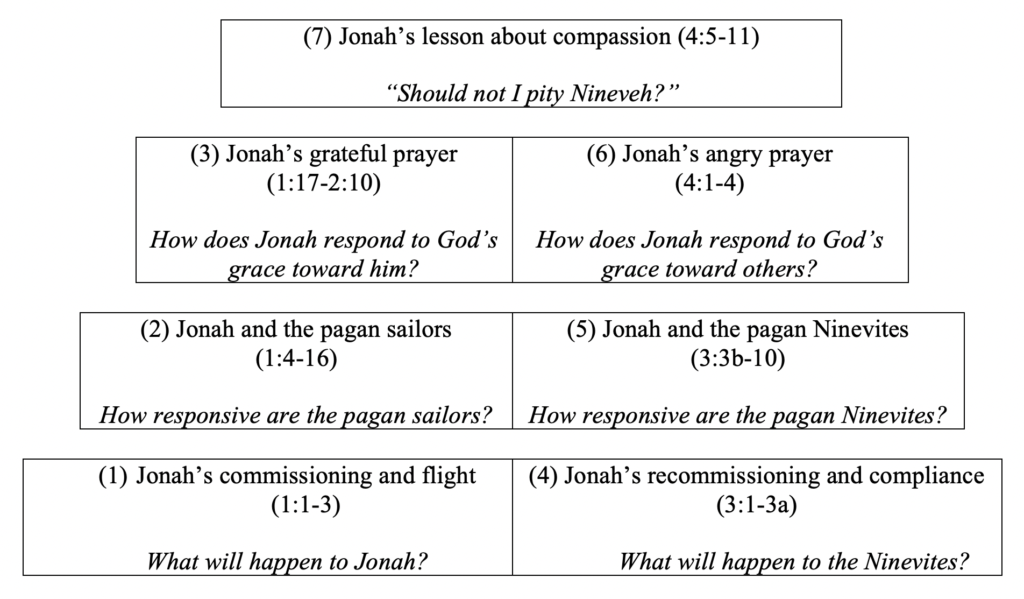We have spent the last two weeks beginning our journey through the book of Jonah and it has been amazing to hear how the book has been sinking into our hearts. We are praying that God will use Jonah to shine a spotlight on God’s relentless love for all people and that it will draw us deeper into his mission to bring God’s message of grace everywhere we go.
The book of Jonah is a carefully crafted literary work which we have seen on the small scale each week as we have worked through the text. But there is also an even larger literary structure that paints a powerful picture of important themes and questions for us, as readers. Below is the structure of Jonah, listed in the ESV Study Bible, which is very similar to how many Old Testament scholars outline the book:

The first three episodes in Jonah, parallelly the fourth through sixth episodes, all of this leading to a climactic section in 4:5-11. The parallel sections emphasize God’s commission of Jonah, the pagan’s response to God and insightful prayers of response. The book ends with an open question: God says to Jonah in 4:11,
And should not I pity Nineveh, that great city, in which there are more than 120,000 persons who do not know their right hand from their left, and also much cattle?”
Jonah has been angry about God’s grace to the Ninevites and God challenges him (and us) to consider God’s relentless love towards all people. The open-ended question forces the reader to think deeply on how great God’s love is and how we need to show this same love to all people. We will unpack this more in the last few weeks of our series.
It is also worth mentioning that the very center of the book is found in Jonah 2:9, which is the climactic point of Jonah’s prayer and it declares that “Salvation belongs to the Lord.” We will dive into this section this upcoming Sunday, but it is worth highlighting that in light of the whole book that God is shown as the true hero. God is the only one who can bring ultimate deliverance for humanity. The Gentile sailors and Ninevites responded to God with repentance, which then challenges Jonah’s hard-heartedness (and our own). This book calls the people of God (Israel in their day, the church in our day) back to the role of being a Kingdom of priests and a holy nation (Exodus 19:6; 1 Peter 2:9).
